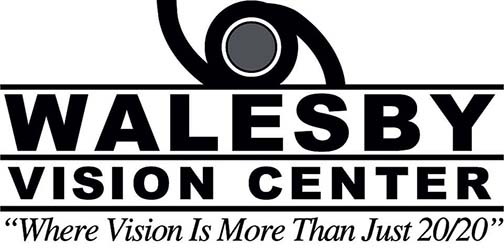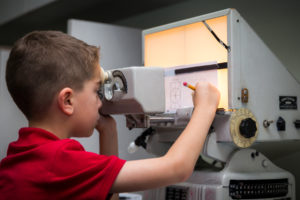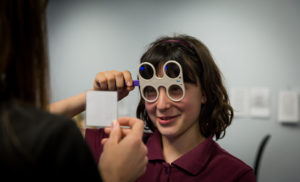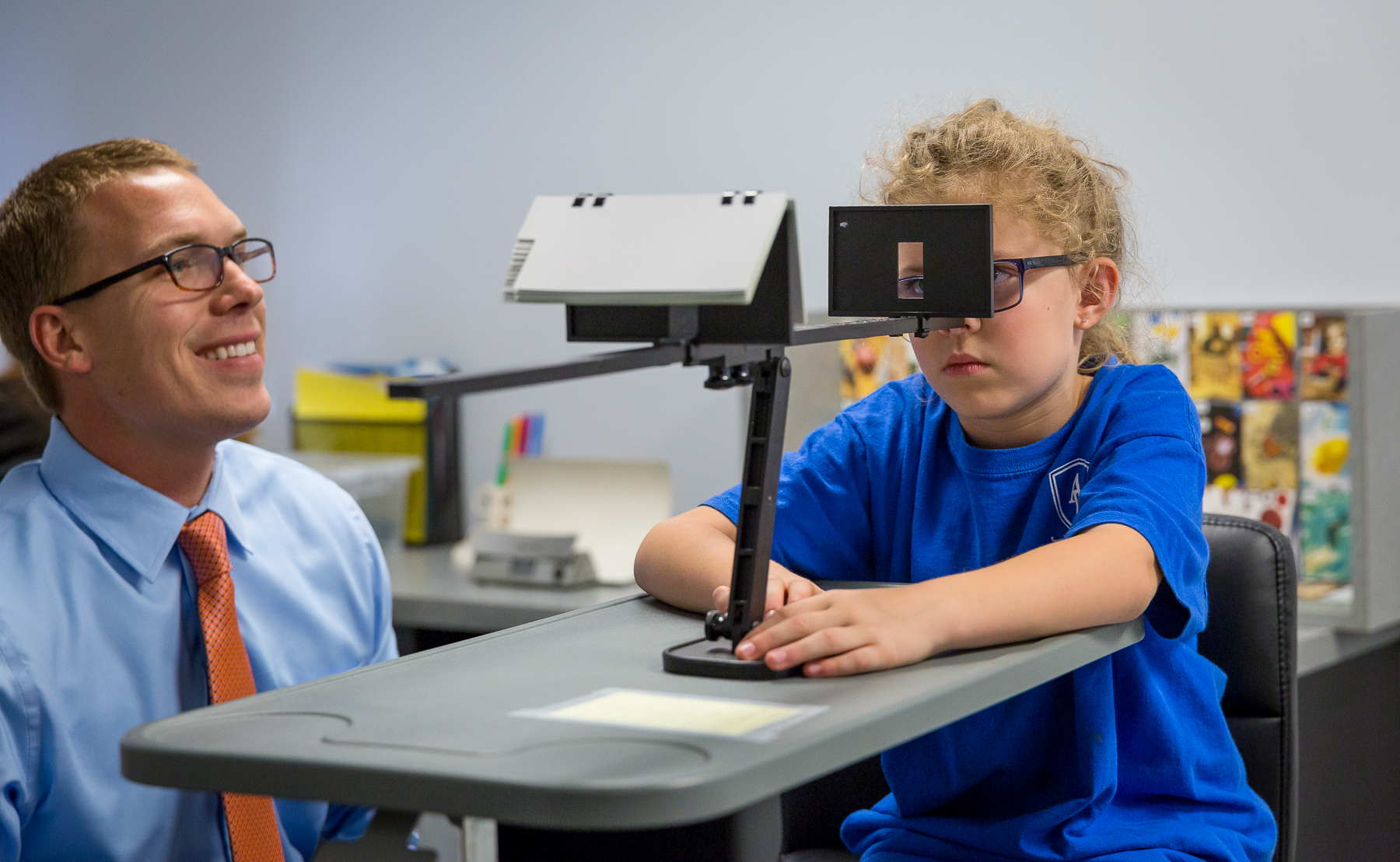
Vision Therapy is an individualized, supervised, treatment program designed to correct visual-motor and/or perceptual-cognitive deficiencies. Vision Therapy sessions include procedures designed to enhance the brain’s ability to control:
- Eye alignment
- Eye tracking and eye teaming
- Eye focusing abilities
- Eye movements, and/or
- Visual processing
Visual-motor skills and endurance are developed through the use of specialized computer and optical devices, including therapeutic lenses, prisms, and filters. During the final stages of therapy, the patient’s newly acquired visual skills are reinforced and made automatic through repetition and by integration with motor and cognitive skills.
WHO BENEFITS FROM VISION THERAPY?
Children and adults with visual challenges, such as:
Learning Related Vision Problems
Vision Therapy can help those individuals who lack the necessary visual skills for effective reading, writing, and learning (i.e., eye movement and focusing skills, convergence, eye-hand activity and visual memory skills).
Poor Binocular Coordination
When the two eyes fail to work together as an effective team, performance in many areas can suffer (reading, sports, depth perception, eye contact, etc.). Vision Therapy rectifies this, by helping individuals develop normal coordination and teamwork of the two eyes (binocular vision).
Convergence Insufficiency (Common Near Vision Disorder)
Convergence insufficiency occurs when the eyes don’t turn inward properly while focusing on a nearby object. When you read or look at a close object, the eyes should converge (turn inward together to focus), so that one will see a single image.
Recent scientific research, funded by the National Eye Institute and conducted at Mayo Clinic, has proven that in-office Vision Therapy is the best treatment for Convergence Insufficiency:
 Strabismus and Amblyopia
Strabismus and Amblyopia
Vision Therapy programs offer much higher cure rates for turned eyes and/or lazy eye when compared to eye surgery, glasses, and/or patching, without therapy. The earlier the patient receives Vision Therapy the better; however, our office has successfully treated adults of all ages.
Stress-Induced Visual Difficulties
Current culture and modern lifestyles demand more from our vision than ever before. C.V.S. (Computer Vision Syndrome) is one of the fastest growing health concerns in the workplace today. Environmental stresses on the visual system (including excessive computer use or close work) may induce eyestrain, headaches, and/or visual difficulties, which can be effectively treated with corrective lenses and/or Vision Therapy.
Visual Rehabilitation for Special Populations
Vision can be compromised as a result of neurological disorders or trauma to the nervous system (such as, traumatic brain injuries, stroke, whiplash, developmental delays, cerebral palsy, multiple sclerosis, etc.). Vision Therapy can effectively treat the visual consequences of trauma (including double vision).
Sports Vision Improvement
Strong visual skills are critical to sports success. Not much happens in sports until your eyes instruct your hands and body as to what to do! Through Vision Therapy, we can measure and successfully improve athletic visual skills, such as eye-hand coordination, visual reaction time, peripheral awareness, eye teaming, focusing, tracking, and visualization skills – just to name a few.

Lutz Office
(813) 345-8544
24444 State Road 54, Lutz, FL 33559
Oldsmar Office
